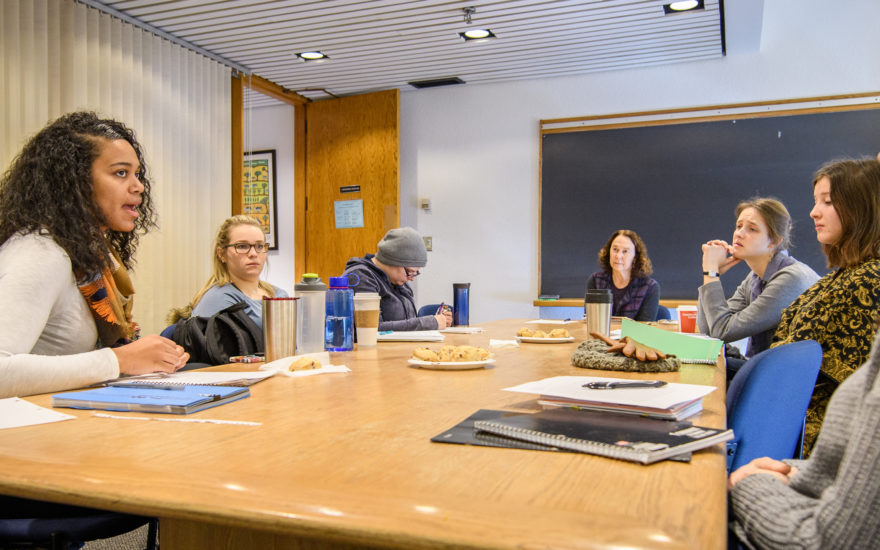Courses in the sociology major examine a wide array of social processes, such as social stratification, social movements, and social change. Through the investigation of social institutions, you will acquire the conceptual and analytical tools to enhance your understanding of not only your own life, but also the world.
As a sociology major, you will be required to take 11 courses, which include three required foundation courses, one social research process course, and a capstone seminar that includes a significant research component. Students who share interest in a topic not included in the curriculum may propose a seminar/reading group and meet with a faculty member on a weekly basis. For example, students organized a seminar on the sociology of disability studies.
Although we do not have specific tracks within the major, we do have concentrations in the areas of law and social control; medicine and community health; and immigration and globalization. In each of these areas, students can take two or more courses, which often culminate in a capstone experience involving research or an internship.
Addams-Mills Award
The Addams-Mills Award is given annually to honor one or two graduating sociology majors who exemplify the community service ideas of Jane Addams, a founder of community-based social work and a Nobel Peace Prize laureate, and the intellectual tradition of C. Wright Mills, an outspoken sociologist and critic of American power structures.
Qualified students can apply for membership in Alpha Kappa Delta, the International Sociology Honor Society. Alpha Kappa Delta sponsors annual student paper contests, presenting awards that include monetary prizes, travel support, and scholarships. In addition, by funding research symposia and honoraria for guest speakers, the society supports chapter activities that further education.


